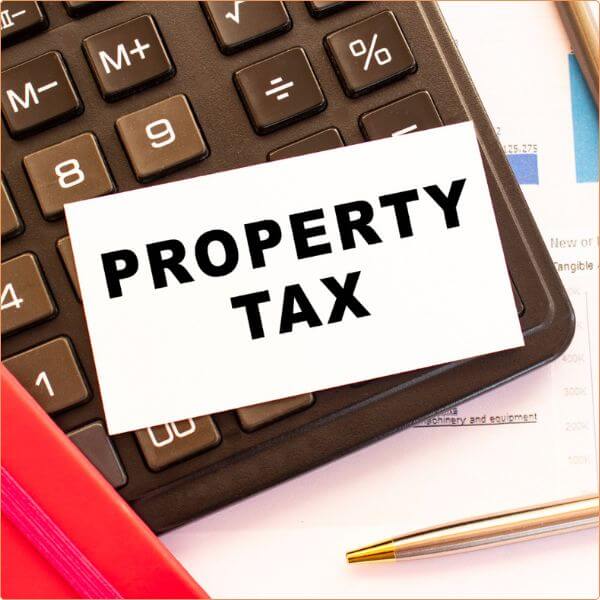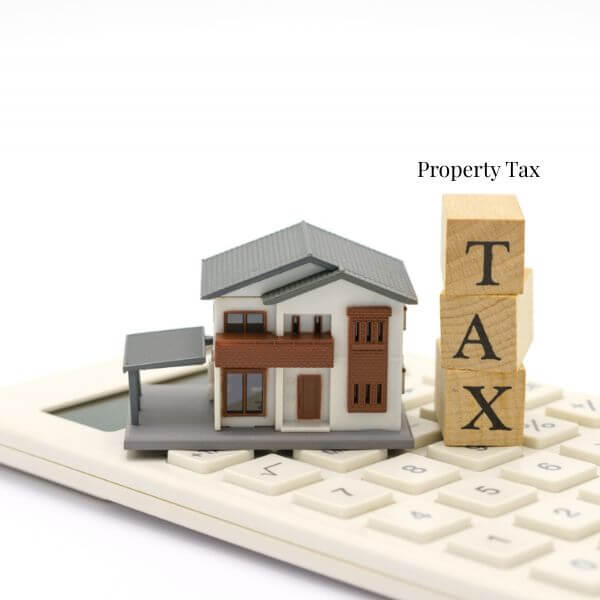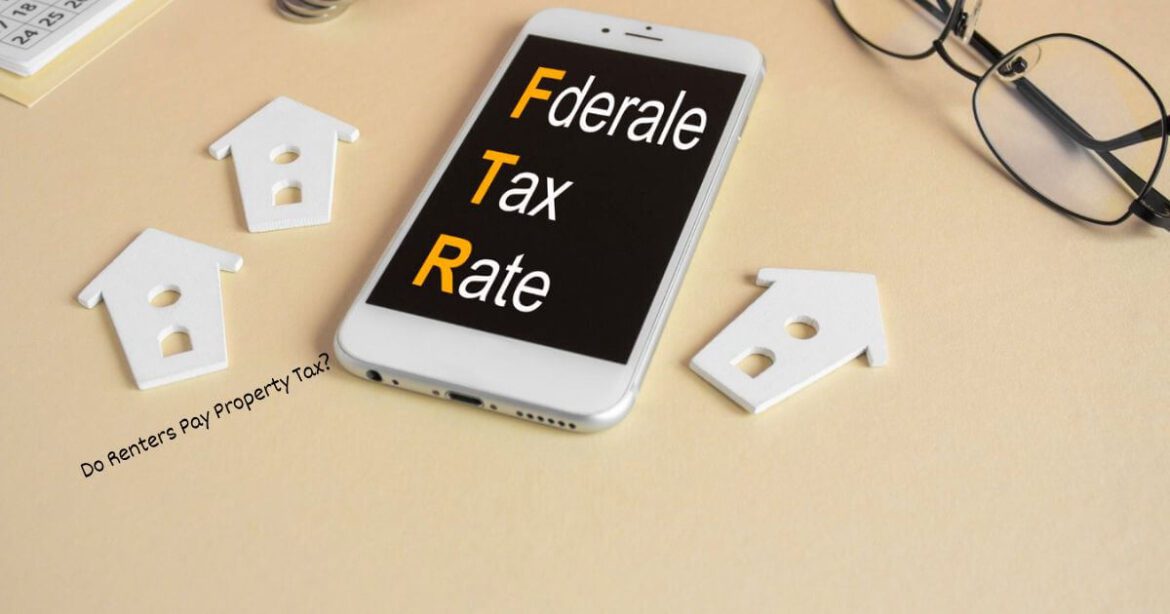Last Updated on November 29, 2025 by Amrita Das
Understanding the financial dynamics of renting can be tricky, especially when it comes to property taxes. While renters don’t write out a check to the tax office, they may still wonder if they are footing the bill indirectly. This blog dives into whether renters pay property taxes, how these taxes influence rental prices, and what you need to know to stay informed.

Understanding Property tax: Do Renters Pay Property Tax?
What Is Property Tax?
Property tax is a local tax imposed on real estate by municipal, county, or state governments. It applies to property owners and is based on the assessed value of residential or commercial properties. The funds raised through property taxes are essential for maintaining public services such as:
- Public Schools
- Emergency Services (Police and Fire Departments)
- Road Maintenance
- Public Parks and Libraries
- Essentially, property taxes ensure the functionality and desirability of your local community.
How Property Taxes Are Determined
The process of calculating property taxes is a bit technical but follows a standard framework:
- Local Budget Assessment: Local governments first determine how much funding is needed to cover community services for a fiscal year.
- Property Assessments: Local assessors determine the market value of each property within the jurisdiction.
- Tax Rates, or Millage Rates: Based on the budget requirements, tax rates (commonly measured in “mills”) are set. For context, 1 mill is equivalent to $1 in tax for every $1,000 of a property’s assessed value.
- Calculation of Tax Bill: The property’s assessed value is multiplied by the tax rate to determine the total property tax owed. For example, if a home is valued at $300,000 and the local tax rate is 1.5%, the homeowner would owe $4,500 annually in property tax.
Read More: How To Pay No Taxes On Rental Income? A Detailed Guide
Who Pays Property Taxes? Do Renters Pay Property Tax
The Primary Responsibility Lies With Property Owners
Property taxes are typically the direct responsibility of the property owner. For homeowners, this means paying property taxes as part of homeownership costs. For landlords, property taxes are an inevitable expense associated with owning rental properties.
Do Tenants Pay Property Taxes?
While tenants don’t pay property taxes directly, they sometimes contribute indirectly. Many landlords include a portion of their property tax obligations in the rent they charge tenants. Essentially, tenants may cover some or all of the landlord’s property tax expenses through their monthly rental payments.
However, some unique situations occur where tenants are directly liable for property taxes:
- Triple-Net Leases (NNN): Tenants of commercial properties with triple-net leases often pay property taxes, insurance, and maintenance in addition to their rent.
- Homeowner’s Association (HOA) Fees: For properties governed by HOAs, some property tax costs may be bundled with HOA dues, which landlords may pass on to tenants indirectly.
- Special Lease Agreements: Occasionally, customized lease agreements may stipulate that tenants assume responsibility for property taxes. This is, however, rare in residential arrangements.
How Property Taxes Directly Affect Rent
Landlords own the properties and pay property taxes to the local government. However, like any business expense, property taxes contribute to the overhead costs of running a rental property. To maintain profitability, landlords account for property taxes when setting rental prices.
Here’s how rising property taxes impact rent prices:
- Higher Operating Costs: When property taxes increase due to rising property values or tax rate hikes, landlords face higher expenses. These costs are often passed on to tenants as higher rent.
- Market Demand Amplifies Costs: Areas with high property tax rates and high housing demand often experience steeper rental prices to offset property expenses.
For renters, this means that living in a high-tax area may lead to higher rent payments, even if they are not paying property taxes directly.
Why Rent Prices Vary by Location
The connection between property taxes and location is undeniable. Renters in different neighborhoods, cities, or states may experience vastly different rent costs because property taxes are influenced by local governance and property values.
For example:
- Urban vs. Rural Areas: Urban properties often have higher assessed values and property tax rates, leading to higher rents compared to rural areas.
- State Tax Policies: Certain states and cities impose steeper property tax rates to fund public initiatives, which can disproportionately affect renters in those regions.
Understanding local tax dynamics can help renters identify areas with lower rental costs.
Why Property Taxes Matter?

If you’re a property owner, understanding property taxes is indispensable. Here’s why they matter:
For Homeowners:
- Budgeting: Property taxes can take up a significant portion of household budgets. Knowing your obligations helps with financial planning.
- Community Support: Paying property taxes funds essential local services, improving the quality of life for you and your neighbors.
For Landlords:
- Rental Pricing: Landlords often calculate property taxes into their overall rental pricing strategy to ensure profitability.
- Financial Management: Knowing local property tax rates allows landlords to anticipate operating costs more accurately.
- Depreciation Incentives: Landlords may benefit from tax-saving deductions through depreciation, further lowering their tax burdens.
For Tenants:
Even though tenants aren’t usually responsible for paying property taxes directly, understanding how they impact rental rates can help renters evaluate the real cost of living in a given area.
Renting vs. Buying: What’s the Difference?
At its core, the primary difference between renting and buying lies in ownership. Renters pay a monthly fee to occupy a home owned by someone else.
On the other hand, homeowners eventually pay a mortgage and other associated expenses to own the property outright. But beneath the surface, there are financial, lifestyle, and emotional distinctions to consider.
The Benefits and Drawbacks of Renting
The Benefits of Renting
- Flexibility: Renting provides the freedom to move with less obligation. Whether you’re changing jobs, cities, or just upgrading to a new neighborhood, renting makes relocation much simpler.
- Lower Initial Expenses: Opting to rent often means you only need to cover a security amount and the first month’s rent, making it a more budget-friendly choice upfront. Homeownership, however, requires down payments, closing costs, and other significant expenses.
- Fewer Responsibilities: Maintenance and major repairs usually fall under the landlord’s responsibility, making renting less of a financial and time burden.
- Financial Stability: With fixed monthly rent, tenants can better predict housing expenses, avoiding the variability of unexpected repair costs or fluctuating property taxes.
The Drawbacks of Renting
- No Equity: Paying rent builds no ownership stake in the property, meaning you’ll never see a return on your monthly payment.
- Limited Control: Renters often deal with restrictions, whether it’s on painting walls, owning pets, or other modifications to the home.
- Market Dependency: Rising rental rates can make long-term financial planning more difficult.
Renting vs. Owning: Making the Right Choice for You
Deciding to rent or buy a home comes down to your current life situation, future goals, and financial health. Here’s a quick breakdown:
Rent if:
- You need flexibility to move for personal or career reasons.
- You value less responsibility for maintenance or repair expenses.
- You’re working toward building a larger financial cushion.
Buy if:
- You’re committed to living in the same place long-term.
- You have the financial resources for upfront and ongoing homeownership costs.
- You’re looking for long-term wealth-building through equity and appreciation.
Ultimately, owning a home is as much a lifestyle choice as it is a financial decision. Consider seeking advice from a financial advisor or real estate professional to help evaluate what makes the most sense for your unique circumstances.
Additional Reading: Do Amish People Pay Taxes? An Essential Guide
7 Proven Ways to Lower Housing Costs
1. Negotiate Your Rent
Did you know that rent prices are often negotiable? If you’ve been a reliable tenant or you’re moving into a competitive rental market, you may have room to negotiate with your landlord.
Tips for successful negotiation:
- Offer to sign a longer lease (e.g., 12–24 months) in exchange for a discount.
- Highlight your positive renter history, such as consistent on-time payments.
- Conduct thorough research on comparable rents in the area to strengthen your negotiation position.
Even a modest reduction of $50–$100 per month can save you hundreds of dollars annually.
2. Consider Areas with Lower Property Taxes
Location is one of the most significant factors affecting rent prices. Areas with lower property taxes often have more affordable rental rates.
If you’re flexible about where you live, look for neighborhoods or even towns with reduced taxes. While this may mean moving a little further away from the city center, the savings on rent can make up for the added commute.
3. Find a Roommate
Splitting housing costs with a roommate can significantly reduce your monthly expenses. With a shared living arrangement, you can divide not only rent but also utilities, internet costs, and sometimes even groceries.
When searching for a roommate, focus on finding someone with similar living habits and expectations to ensure compatibility.
4. Negotiate Early Lease Renewals
If you enjoy your current rental and want to stay long-term, consider asking your landlord for an early lease renewal at the existing rental rate. Landlords often prefer keeping a reliable tenant rather than going through the hassle of finding someone new, especially if the rental market is stable.
Reach out to negotiate before your current lease ends, and propose locking in a fair rate as part of your renewal terms.
5. Explore Renters’ Tax Credits
Many states offer renters’ tax credits based on the idea that a portion of rental payments indirectly goes toward covering property taxes. These credits vary by state but can make a meaningful difference in reducing housing costs.
Check your local tax authority or consult with a tax professional to determine if you’re eligible for any renters’ tax benefits.
6. Bundle and Save on Utilities
Utilities can add a substantial amount to your housing expenses, but there are ways to cut these costs down.
Simple strategies include:
- Choosing energy-efficient appliances and lighting.
- Asking your landlord whether options exist to include utilities in your rent.
- Exploring internet and cable packages designed for households, so you aren’t overpaying for standalone services.
- Consolidating and managing utility bills carefully can provide considerable savings over time.
7. Use Discounts for Loyalty or Maintenance
If you’ve been renting from the same landlord for an extended period, you might be able to request loyalty discounts. Similarly, offering to take on small, non-critical repairs in exchange for a rent discount can be another creative way to save.
Landlords often appreciate tenants who demonstrate responsibility and reliability, which could result in reduced costs for both parties.
Read More: Do Churches Pay Property Tax? A Comprehensive Guide
Do Renters Pay Property Tax? Conclusion
Though renters don’t directly pay property taxes, they are undeniably impacted by them. Rent payments often include a share of the landlord’s tax responsibilities, meaning property taxes indirectly shape what tenants pay monthly.
Awareness of this connection can help renters better manage housing expenses, negotiate effectively, and even seek tax credits when possible.
The next time you evaluate your rental costs, remember there’s more to the equation than meets the eye. Understanding property tax dynamics is even more important for those considering homeownership because taxes will directly impact your budget and long-term savings.
